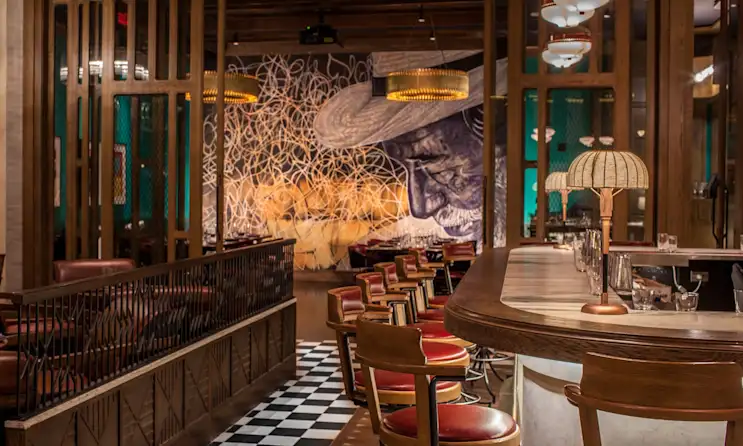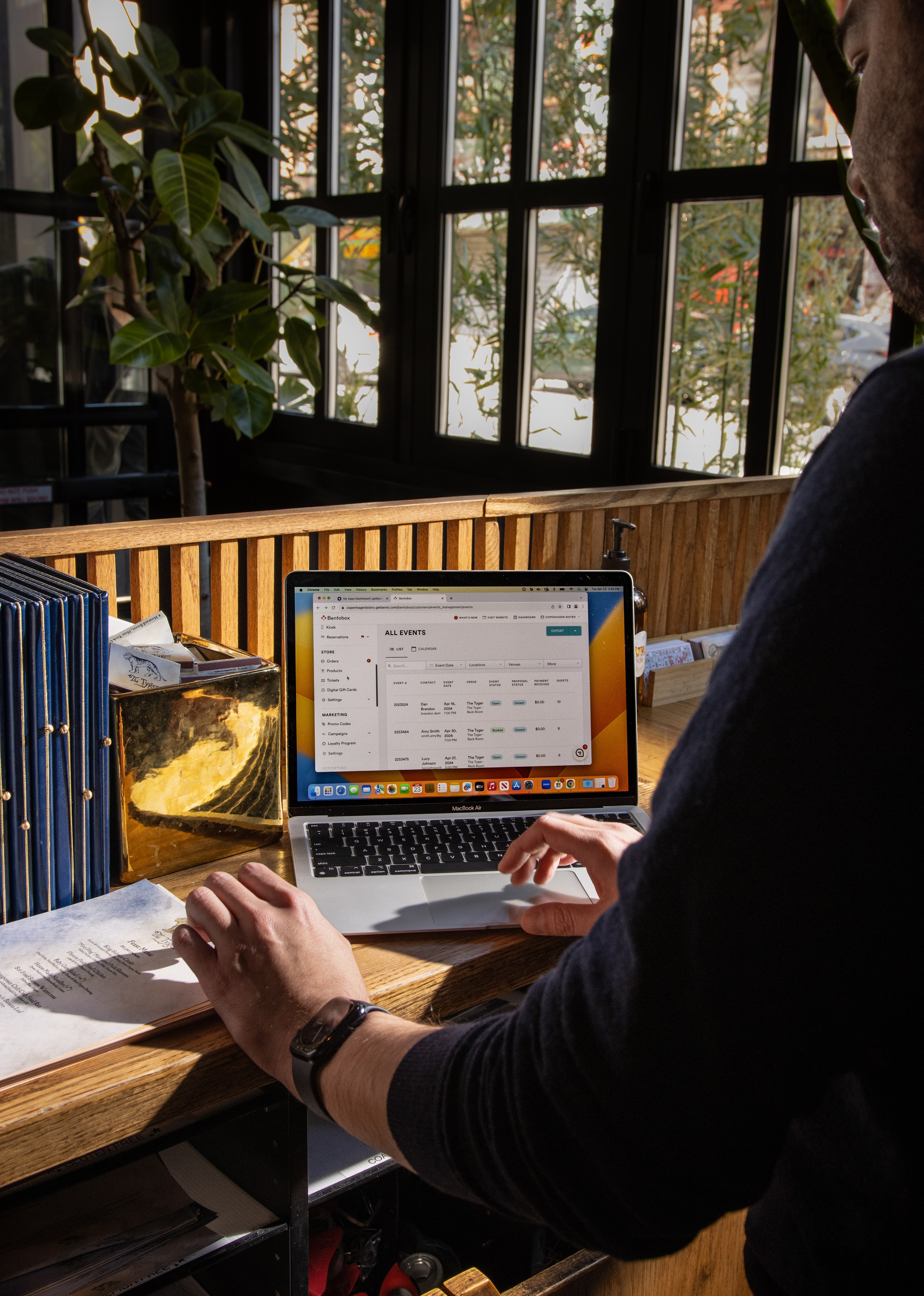New Openings
How to Get a Liquor License in California
August 2, 2022
Everything restaurants need to know about serving alcohol in the Golden State.
Disclaimer: This information is not intended to be legal advice. Contact your attorney or state authority if you have questions about compliance. Last Updated: July 2022
Snagging a coveted liquor license is a big deal for restaurants — and in many cases, it can make or break your business. The average profit margin for a restaurant is about 5%, but adding liquor to your services can help increase check sizes and boost you financially. In fact, margins on booze can be between 20-40%.
For California restaurants looking into a liquor license, get familiar with the California Department of Alcoholic Beverage Control. The state agency leads legislation, licensing, enforcement and education around alcohol. This guide will cover the types of licenses that restaurants need, how to apply, an overview of costs and tips for keeping yourself in good standing.
Types of Liquor Licenses
There are 99 types of liquor licenses in the state of California. Restaurants should be aware of two specific types:
Type 41: On-Sale Beer & Wine - Eating Place
Type 47: On-Sale General - Eating Place
In order to qualify for either license, you’ll need to maintain suitable kitchen facilities and prove substantial sales of meals for consumption on-premises. The key difference is that the General license is a full liquor license (covering the sale of beer, wine and distilled spirits) while the Beer & Wine license only covers those two beverages. Here’s a full list of all liquor licenses available.

RESOURCE
The Los Angeles Restaurant Worker Report
Learn how Los Angeles' restaurant workforce is growing and how to attract more workers.
How to Apply for a Liquor License in California
The Department of Alcoholic Beverage Control (ABC) thankfully makes it simple to understand the License Application Process. It will walk you through everything from initial filling to investigation to the issuance of the license. Keep reading for details.
1. Visit your local ABC office
Currently, California does not support an online application process. To kick things off, you’ll need to visit one of the District Offices. At your appointment, an ABC representative will ask you questions and determine what type of liquor license you need.
2. Understand your responsibility around notifications
After your meeting at the local ABC office, you should have a better sense of your application responsibilities. At a minimum, you are required to post a Public Notice of Application on your premises for 30 days.
Beyond that, ABC may request that you do the following:
Publish a notice in the newspaper.
Send a notice to anyone living within a 500-foot radius of your establishment.
Secure proof from the local planning department that the zoning allows for an ABC license.
3. Undergo an investigation
As required by law, ABC will conduct an investigation to confirm that you and your restaurant qualify for a liquor license. Two reasons why your license may be denied are 1) you are not qualified as an applicant and 2) the premises are not suitable.
Falsifying your application, having a disqualifying police record, being under 21 years of age, being located in a zoning area that does not support alcohol sales and not having legal tenancy are a few reasons you may be deemed unqualified or your premises may be deemed unsuitable.
4. Budget at least three months for processing
ABC will mail a copy of your application to local officials. After that, you should factor in a 30-day posting period for your Public Notice of Application and an investigation of 45-50 days. The total time for securing a new liquor license averages about 90 days, but it’s best to be conservative in your estimates.
How Much Does a California Liquor License Cost?
The application fees for the two types of liquor licenses mentioned above are as follows:
Type 41: On-Sale Beer & Wine - Eating Place = $945
Type 47: On-Sale General - Eating Place = $6,275
Remember, the General license is a full liquor license covering the sale of beer, wine and distilled spirits, which is why it is six times more expensive. Here’s the full list of fees.

RESOURCE
The San Francisco Restaurant Worker Report
Learn how San Francisco's restaurant workforce is growing and how to attract more workers.
What to Do to Keep Your Liquor License
You’ve waited three months for your liquor license, paid the required fees and now you can start selling alcohol. Protecting your investment is important, and there are many ways to reduce your liability and safeguard against losing your license. Follow the tips below to ensure you’re staying within compliance.
1. Complete mandatory training
A new law that went into effect on July 1, 2022, requires alcohol servers and managers to become certified in responsible beverage service training. Bookmark the Responsible Beverage Service Portal for easy access to training details.
2. Obtain a LEAD certificate
Since 1991, California’s Licensee Education on Alcohol and Drugs (LEAD) program has been a way to educate licensees on how to sell alcoholic beverages safely, responsibly and legally. The three-hour course covers topics such as preventing liability, how to check identification, understanding signs of intoxication and how to intervene with minors.All staff members can benefit from the education — regardless of whether they directly serve alcohol — and a well-informed team can reduce overall liability for your restaurant. Training is free and available both online and in-person. Take note that while LEAD training is a great resource, it does not satisfy the mandatory Responsible Beverage Service requirements. Read more about LEAD Training here.
3. Train staff on checking identification
It’s crucial that your team understands what constitutes a legally acceptable form of identification. It must contain these six characteristics:
Issued by a U.S. government agency (federal, state, county, or city)
Name of the person
Date of birth
Photograph
Physical description (height, weight, hair and eye color)
Currently valid (not expired)
Additionally, you can encourage staff members to follow the FLAG method — Feel, Look, Ask Questions, Give Back. Having a solid ID policy in place at your establishment is a must for keeping your liquor license.
4. Review the On-Sale Licensee Informational Guide
As part of its Merchant Education programming, ABC provides a digital version of its On-Sale Licensee Informational Guide. The gray box on the right-hand side links to various resources. A few to take note of are:
5. Remember to renew
Licenses need to be renewed every 12 months and must be paid on or before the last day of the month in which it expires. After submitting your renewal, an updated license is distributed 4-6 weeks later. Use ABC’s License Lookup to see the status of your license.
Additional Resources for California Restaurants
Quick Links
Recommended

New Openings
32 Instagrammable Restaurant Decor Ideas
August 25, 2022
This round-up of decor inspiration is all you’ll need to level up your restaurant.

New Openings
How to Open a Restaurant + Free Business Plan Template
February 10, 2022
A step-by-step guide to planning, financing, staffing, stocking and marketing a new restaurant for its debut.

New Openings
Restaurant Financing: 8 Strategies & Tips to Secure Funding
May 13, 2021
Learn about concrete resources and tips for getting funding for your new or existing restaurant business.

